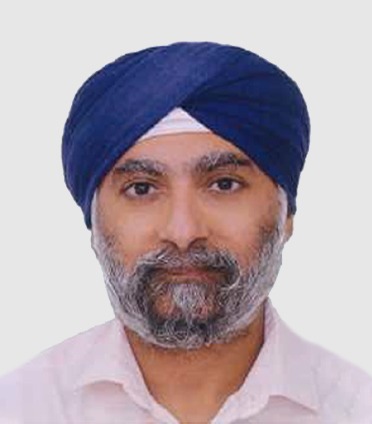BIOGRAPHY
Dr Harmeet Singh is currently Senior Lecturer at Republic Polytechnic. He has accumulated approximately 17 years of research experience in both academia and industry, working at established institutions such as NUS, A*STAR, the L’Oreal Advanced Research lab (Singapore). He also worked at the National Research Foundation as a Deputy Director (CREATE) and programme manager, managing the running of the Singapore-MIT Alliance for Research and Technology (SMART) programme.
A multi-disciplinary scientist with a diverse research background, Harmeet was trained as a mechanical engineer, and then went on to specialise in Tissue Engineering and Bioengineering. He was involved in the design and development of bioreactor systems for tissue engineering applications and skin cell biology studies. With 15 years of experience in culturing an array of cell types, ranging from stem cells (embryonic, mesenchymal, IPSc), osteoblasts, primary dermal fibroblasts and keratinocytes and various other cell lines, including suspension-based cell-lines, his current portfolio involves the early stages of developing methods of culturing and scaling up myoblasts for clean meat applications.
PORTFOLIO
- Designed a significantly more efficient bioreactor system to enhance the growth of cells by manipulating the fluid dynamic flows within the system, for tissue repair and therapeutic functions
- Done with the aid of a Computational Fluid Dynamics package to model the fluid stresses acting on cells within scaffolds, as well as to determine near ideal conditions to enhance cell growth for osteoblasts
- Evaluated and validated the efficacy of the system
- The bioreactor system has been patented is currently available commercially
Expertise Provided
- Life Sciences - Product Design & Development
- Studies to understand the effects of mechanical forces on primary dermal fibroblasts and keratinocytes
- Developed a screening assay to quantify the effects of compounds via mechanical forces exerted by cells for cosmetic applications
- Performed primary dermal fibroblast and keratinocyte cell culture, fluorescence microscopy, data analysis
- Successfully implemented this screening assay to validate and quantify the efficacy of compounds that could affect dermal fibroblast contraction and keratinocyte stretching
Expertise Provided
- Life Sciences - Product Design & Development

